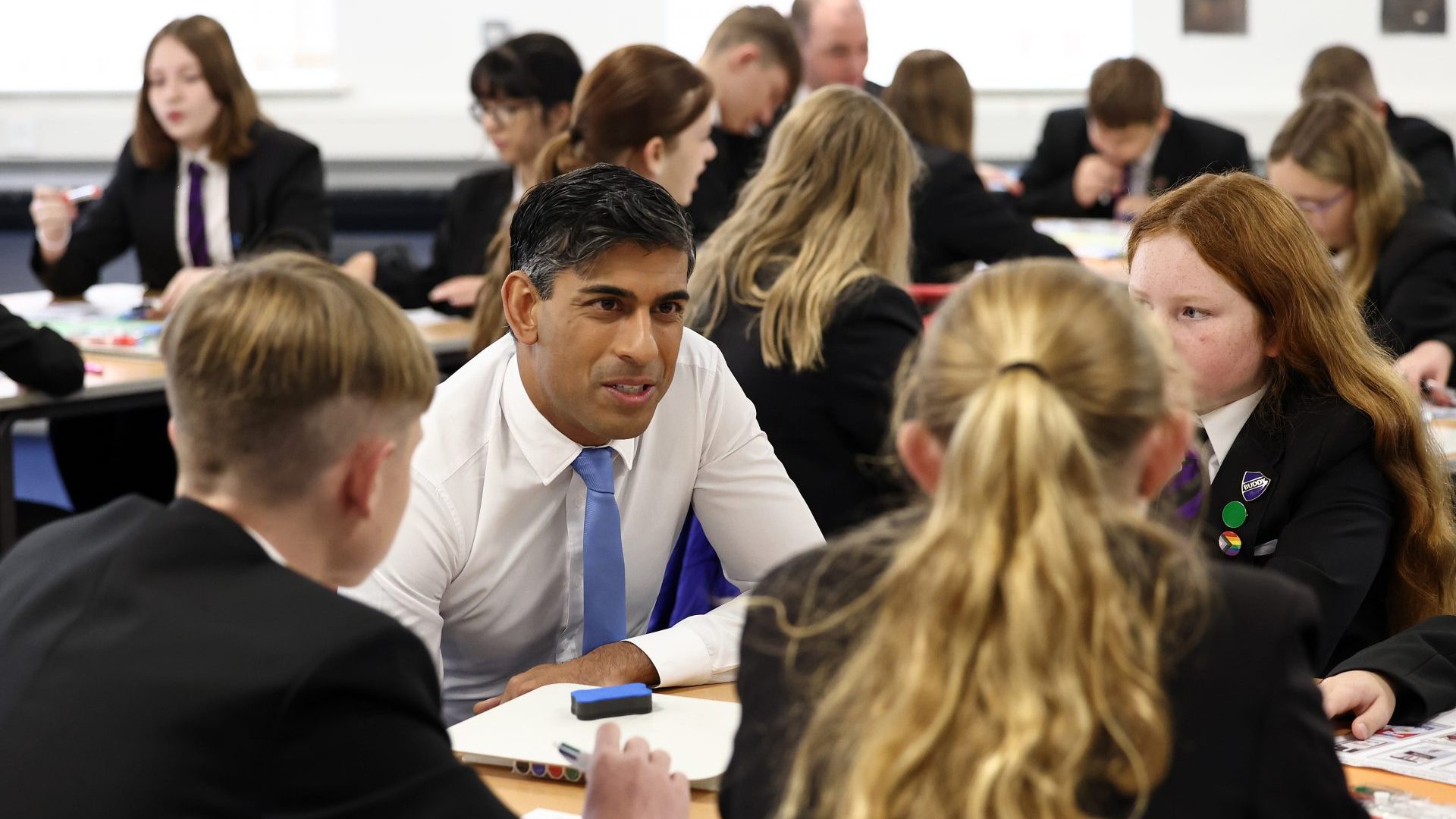What should we be doing about teenagers’ often excessive and sometimes dangerous social media use?
At the end of last year, the government announced that it would launch a consultation “to explore the risks that children were exposed to while using social media”. One of the proposed policies would see children under 16 banned from using social media platforms.
Earlier this month, Esther Ghey, the mother of murdered teenager Brianna, “called for the government to stop children having access to social media apps”. Speaking to Laura Kuenssberg, she argued that under-16s should only be able to use a “children’s phone”, which would only have a restricted number of apps on it, and would alert parents if certain keywords had been used in searches online.
Less controversially, ministers confirmed this week that smartphones would now be banned in English schools. The non-statutory guidance will offer schools a number of potential options to deal with phones “ranging from an order to leave all phones at home, to handing them in on arrival or keeping them in inaccessible lockers, or allowing students to keep them on condition they are not used or heard”.
It would be hard to disagree with the latter – schools are, after all, places where you should learn and socialise with your peers. But the other proposals feel more controversial. According to data from Ofcom, a staggering 97% of 12-year-olds now have a smartphone, with, presumably, full access to the internet.
The world has already changed: any attempt to turn back the tide would have drastic consequences. At risk of stating the obvious, few things matter more in life, between the ages of 12 and 16, than your social life. Who are your friends? What are they getting up to? What are they talking about, especially when you’re not there?
You remember what it was like. I know I certainly do. There is nothing worse to a teenager than the idea that they’re being left out, and even if some policy levers were to be pulled, it seems very unlikely that all teens would suddenly lose access to social media. This would, in practice, create a world of digital haves and have-nots, and I cannot imagine how rotten it would feel to be in the latter camp.
Lawmakers and campaigners are right to worry about the mental health of young people, but making them feel excluded from their social groups would risk increasing their anxiety.
Similarly, the proposal to give parents hefty oversight over their children’s internet use only really works if we assume that all parents have good intentions. Brianna Ghey was lucky to have supportive parents, but not all gay, bisexual and transgender children do. Social media can often be a haven for LGBTQ+ kids who feel they cannot come out at home, or in real life. Would we really want to remove these support networks from them?
More broadly, even children under the age of 16 should be free to explore their personality, preferences, sexuality and identity without having grown-ups breathing down their necks. The internet gave everyone freedom, and it would be a shame to focus exclusively on the downsides.
It should also be pointed out that a lot of our lives now happen online, and via our phones. Many services, including some provided by the state, now need you to navigate a series of websites and apps, not all of which are straightforward. The new generation will almost certainly need to become even more digitally literate than we are currently, and should probably get learning early.
Still, it doesn’t mean that there is no problem here. Today’s teenagers are miserable and are definitely spending too much time on their phones. No-one is denying that. The only worry, at least from this columnist, is that the “something must be done” mindset will end up causing more harm than good.
It also seems convenient to blame smartphones for everything, when there is a cost of living crisis at play, and teenagers had to spend years away from their friends during the pandemic. Let’s perhaps keep phones out of the classroom first then see how we get on, before turning children’s lives upside down.












